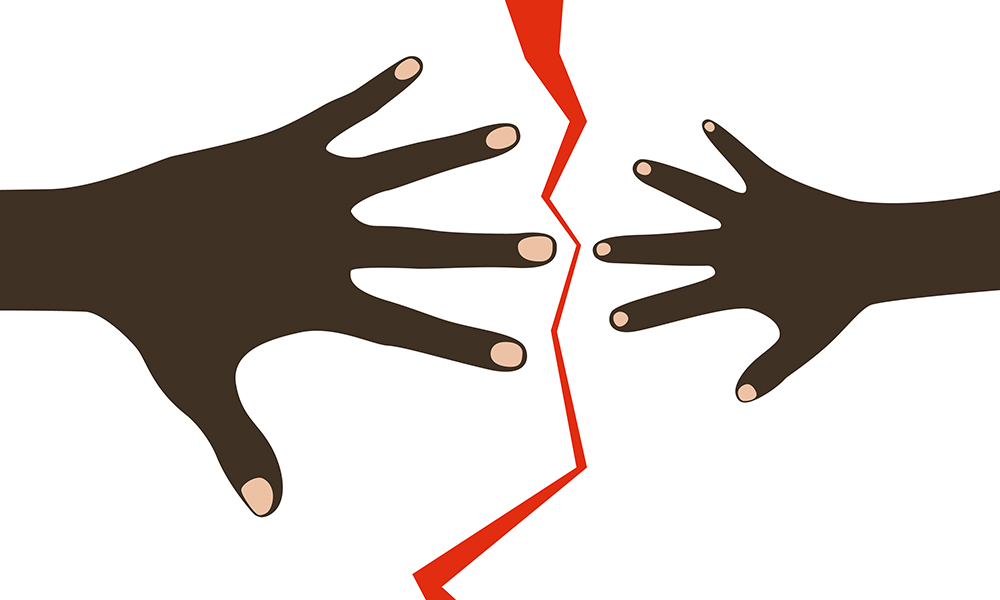
Fir4ik/Shutterstock.com
.
Is this child neglect?
A couple takes their two children, ages 14 and 11, with them on an old “waterlogged” boat, five miles across open sea they’ve never navigated before.
They forget their map.
Approaching their destination they find themselves “squeezing through a harrowingly narrow pass, the shallow waters heaving with an unexpected swell — all the while maintaining our parental poker faces …”
 Halfway back they run out of gas — having apparently not checked to see if they had enough, at which point the older child asks “with mild panic in his eyes ‘You guys know what you’re doing, right?’”
Halfway back they run out of gas — having apparently not checked to see if they had enough, at which point the older child asks “with mild panic in his eyes ‘You guys know what you’re doing, right?’”
They find some extra gas onboard, barely make it back — and then complain to the guy who rented them the boat because he didn’t warn them about how much fuel they’d need.
I did not find this account in court documents or the files of a child protective services agency. On the contrary, it was all just another happy-go-lucky adventure for the very, very rich — as described in their travel magazine of choice Conde Nast Traveler.
The story is recounted by the editor-in-chief herself, Pilar Guzman, in a story about the island of Ponza, off the coast of Italy — “an island of swimmable grottoes, picnic lunches, and breezy little hotels low-key enough for an American family to forget they’re not Italian.”
Life of the rich
The story is filled with lines like:
“Ponza is the kind of place where you can find a no-name, high-quality white cotton button-down shirt for under 80 euros that you will have for the next 10 years.”
And:
“At a time when it’s not uncommon to run into people you know from New York at La Fontelina in Capri or at the bar at Le Sirenuse in Positano …”
Don’t we all?
Guzman isn’t the first travel writer to engage in behavior which, were it done by poor parents easily could lead to neglect charges — or worse.
Consider another travel story, this one about off-the-beaten-path Hawaii for the Washington Post. This time the writer’s children are 8 and 5.
The writer talks about introducing the 5-year-old to snorkeling at a place called the Olivine Pools. Then he writes:
“One caution: web forums are rife with stories of injuries and deaths here, mostly of people clocked by waves while poking around on the lava wall between sea and pools. Although we didn’t see those reports until after our visit, we instinctively kept away from the more exposed sections of that wall.”
Later in the same story he tells us:
“Four miles farther on, we coast into another pullout for one of the most popular attractions on Maui’s backside, the Nakalele Blowhole — which, I later learn, the Hawaii Visitors and Convention Bureau considers too dangerous to promote. We pass a couple of hand-scrawled signs (“Warning … You can be sucked in and killed. It’s not a water-park.”) before descending through chaparral and down a vague trail of red dirt and rock to a basin of lava overlooking the ocean.”
In contrast
Now, let us compare the close calls to which these children were subjected so some of the stories of poor African-American children in the New York Times story about foster care as “the new Jane Crow”:
One mother didn’t know that, while she took a bath with headphones on at the end of a long day, her child, whom she’d already put to bed, had wandered outside to her great-grandmother’s house. Another left her phone with her 6-year-old, then left her home alone for 40 minutes — because of an emergency.
In both cases the children were placed in foster care.
For the Guzman family, the “consequences” were somewhat different:
“We tucked into a meal that we still talk about, as much for its just-caught simplicity … as for its symbolism. There’s nothing quite like a meal or a glass of house white as the hard-earned reward for pushing past one’s comfort zone on foreign soil.”
Do I really think Ms.Guzman and her Washington Post counterpart should be brought up on neglect charges? Of course not. My answer to the question at the start of this column “Is this child neglect?” is: Hell, no. Being a parent involves a daily marathon of judgment calls. Nobody gets all of them right.
But both writers knew, instinctively, that they could write about situations that, unintentionally, could have put their children in danger and suffer no consequences. Margin for error in child-rearing is one more benefit of middle-class status that is denied to poor people.
I’m simply suggesting that child protective services start applying the “Conde Nast standard” to poor families.
In the Times story, Scott Hechinger of Brooklyn Defender Services talked about how a child wandering outside in a poor community becomes “endangering the welfare of a child.” In contrast, says the story,
“In another community, your kid’s found outside looking for you because you’re in the bathtub, it’s ‘Oh, my God’” — a story to tell later.
Or maybe even a story for a glossy travel magazine.
Richard Wexler is executive director of the National Coalition for Child Protection Reform.































